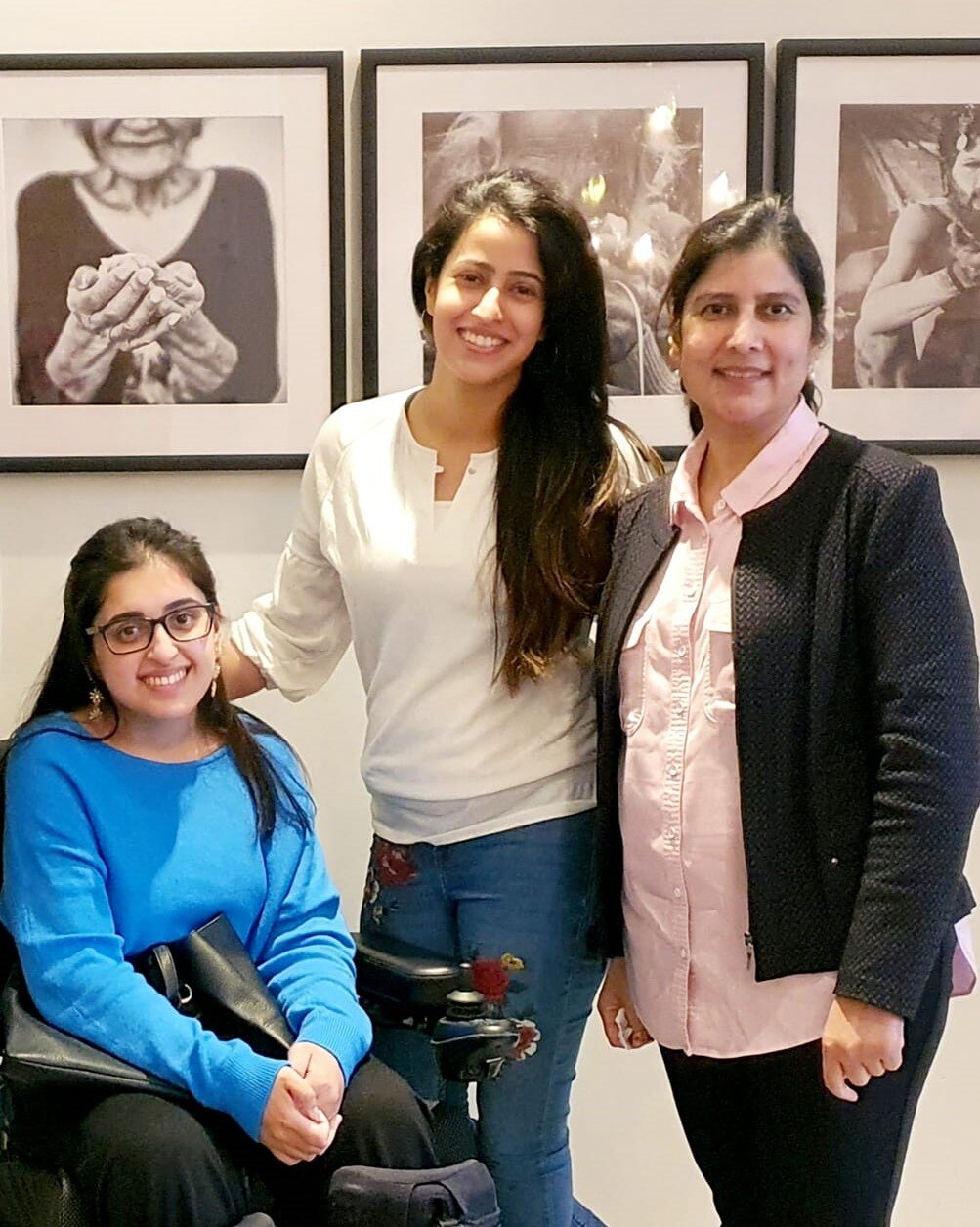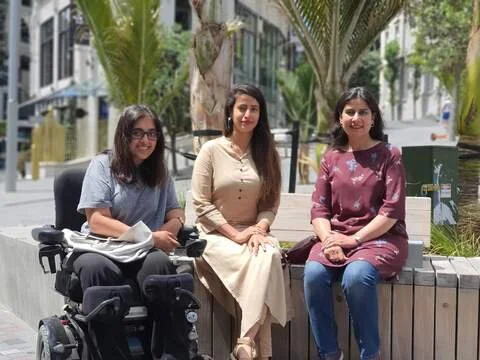The team behind Our Hijrah project of Khadija Leadership Network – (from left) Latifa Daud, Ayesha Asif, Sabina Rehman
Our Hijrah, a research project undertaken by Khadija Leadership Network (KLN), is aiming to record and understand the journeys of Muslim women in New Zealand, and their contribution and service to their communities. The project is partially funded by UNESCO New Zealand.
The team behind the project are two interviewers – Ayesha Asif, who comes from Bangalore, and Sabina Rehman, who is from Lahore. The researcher and writer for the project is Latifa Daud, whose parents immigrated to New Zealand from Gujarat. They are ably-supported by KLN’s founder Tayyaba Khan.
Facebook post by Tayyaba Khan, founder of KLN
“Women’s stories are often overlooked and their frontline contributions to their respective communities, careers and vocations are not recorded in detail. This research will ensure that these stories are documented as a way of preserving the history of Muslim women in New Zealand. We will focus on the nuances and experiences of Muslim women, while navigating and eventually overcoming the social, economic, cultural, linguistic and emotional challenges they have faced,” says Rehman who specialises in comparative literature and teaches Folk-tales of India at the Auckland University. She has been in New Zealand for over 13 years.
On why such a project was needed, Daud explains, “As a Muslim women growing up in New Zealand, I didn’t have any role models, outside of my family. This was mainly due to lack of any documentation. We want to change this, and put forward role models for young Muslim girls in Aotearoa to get inspired from.”
Meanwhile, Asif explained the process of shortlisting of the candidates. “We made a list of potential candidates who fulfilled our criteria of having lived in New Zealand for more than 15 years, and have contributed substantially to the community in any field. Then we shortlisted five to start the project. We have already interviewed the first candidate, which will go live on July 24. Jean Khan and Leila Adam, Jean’s daughter. Jean Khan is British. She converted to Islam and married a Fiji Indian Salamat Khan. While Leila Adam came to New Zealand from Fiji as a child. They were one of the first Muslim families to settle in New Zealand in the 1960s and played a key role in establishing the Kilbirnie Mosque in Wellington.”
Other four interviews, which will be completed by October this year, will have conversations with:
-
Suraya Esau, an educator, published author and activist, who is of South African Malay ethnicity;
-
Hoda El Walili, who is of Egyptian ethnicity and chairwoman of Marhaba, a Muslim playgroup operating out of Anchorage Park Community House in Pakuranga;
-
Noeleen van de Lisdonk, a leading figure in the Maori Muslim community who mobilised support at Ihumatao , founder of Fatimah Foundation and Ou Matou Reo, advisor to the Royal Commission Inquiry into March 15th Christchurch attack; and
-
Fazeela Raza, who is of Fiji Indian ethnicity and the first Muslim woman to make it to a senior role in Public Service through the Office of Ethnic Communities.
“But these five candidates, is just a start. We want to continue this project for much longer and bring out as many stories as we can, depending upon the funding support we receive as we move forward,” added Rehman.
Importantly, as above, the five shortlisted candidates for the project are of different ethnicities. This might give researchers an insight on how the experiences of Muslim women vary depending on their ethnicity, even when they are well-settled in New Zealand.
To this, Asif, who is a past winner of AUT’s School of Communication Studies Awards, and has worked in New Zealand as a communications consultant for over three years, noted, “The teachings of Islam are universal, and are same everywhere. What changes over regions is the cultural construct around the religion, not the religion itself. So if the experiences of Muslim women are different, if at all, depending on ethnicity, it’s more of a cultural thing. But we will see what our research points out.”
Overall, the Our Hijrah team of Rehman, Asif and Daud are excited to bring to light the story of seemingly regular Muslim women who have done extraordinary things in life; the first of which – Jean and Leila’s story – goes live on July 24, here.
About Khadija Leadership Network (KLN) www.khadijaleadershipnetwork.org
Founded in October 2017 by Tayyaba Khan, KLN is her dream to see the status of Muslim women in society revived to the actual teachings of Islam. Khadija bint Khuwaylid (RA), the principle inspiration for the establishment of the Network was the first to accept Islam. In the midst of global negative perceptions and stereotypes around the status of Muslim women, few are aware that the first person to accept Islam happened to be a woman. She was a successful business woman, a philanthropist, a mother and a leader. She was Muhammad’s (PBUH) employer, then his much older wife, and Muhammad’s (PBUH) greatest confidant and advisor.
On the question of what KLN is trying to achieve, Jas Qadir, who is the only male board member at KLN, explains, “What we have observed is that the Muslim community in New Zealand lives in their respective ethnic silos. We need to break free from that. Whether it is in terms of marriages, gatherings, or education, a common platform for Kiwi-Muslims is what is needed. New Zealand Eid Day was one such initiative. KLN’s Our Hijrah is another. Hopefully we will see more such in future.”
-Gaurav Sharma
Note: This is a detailed version of the story published on page 7 in our print issue Volume 3 Issue 13 this week.




